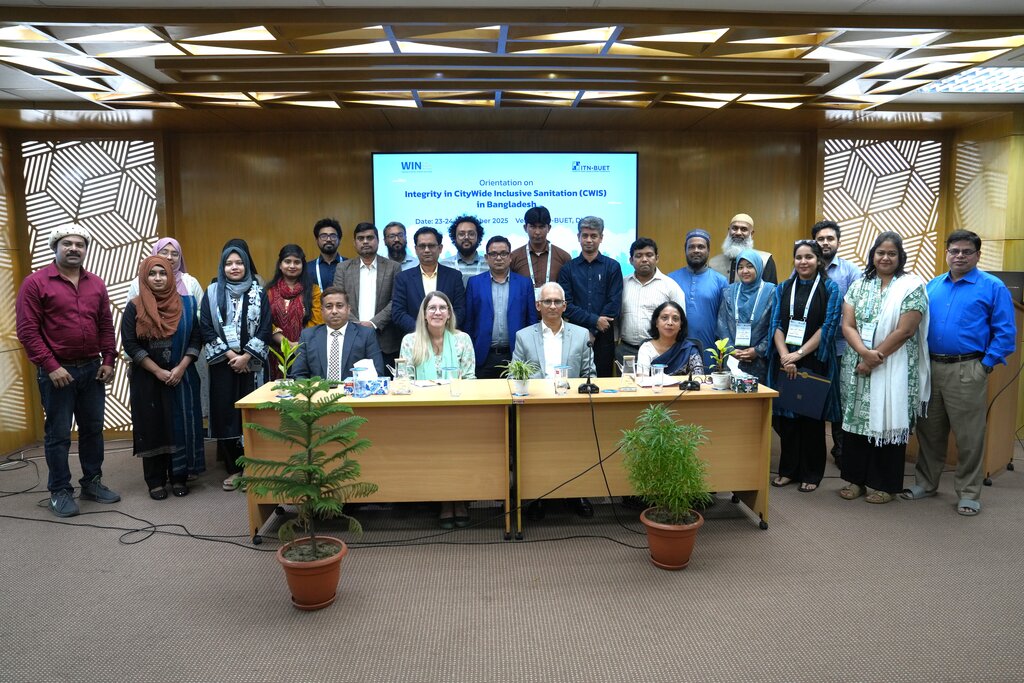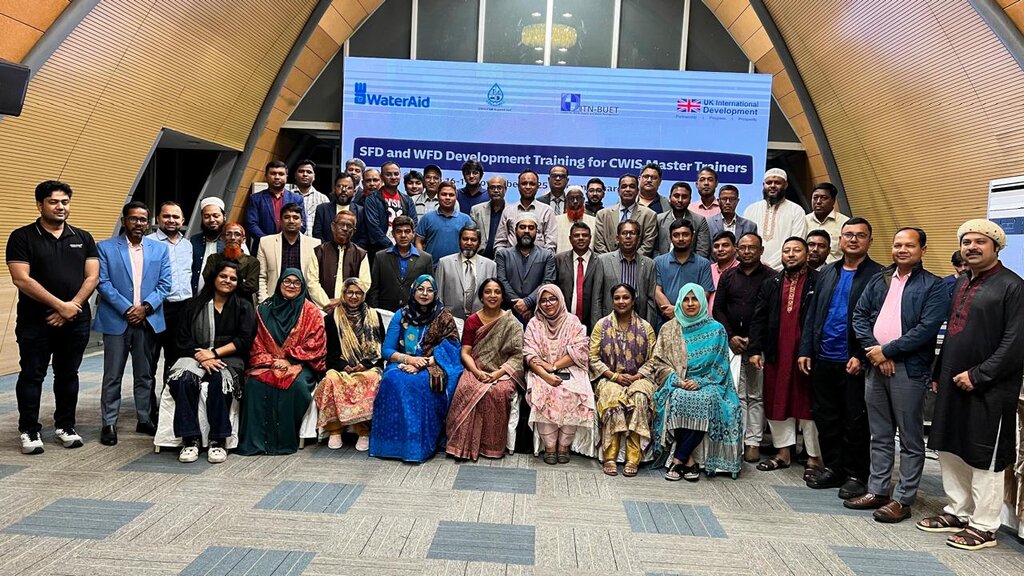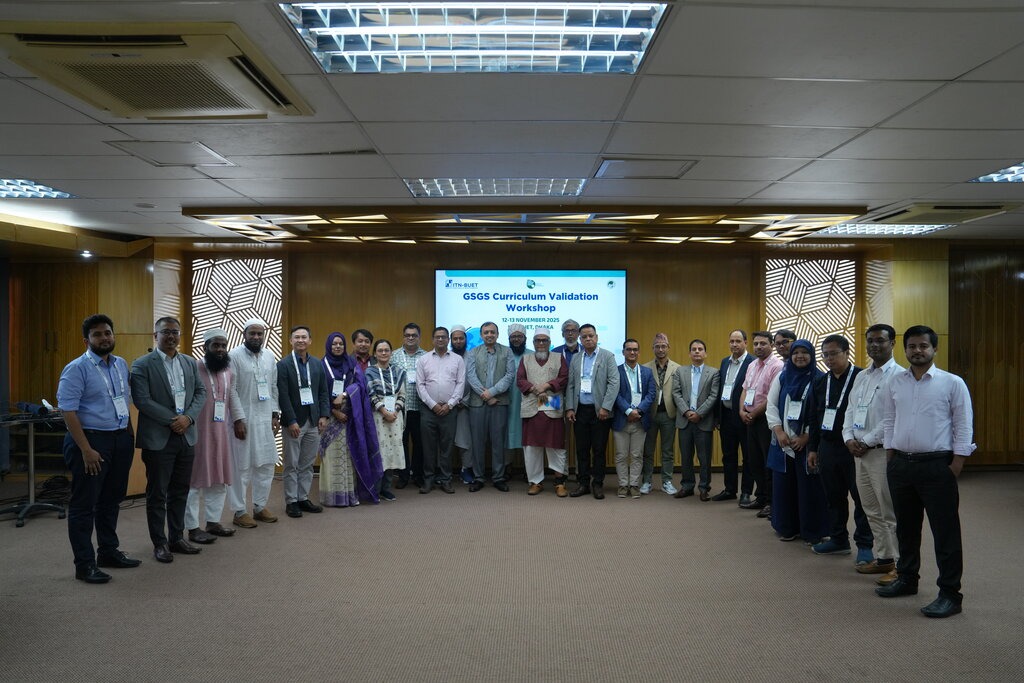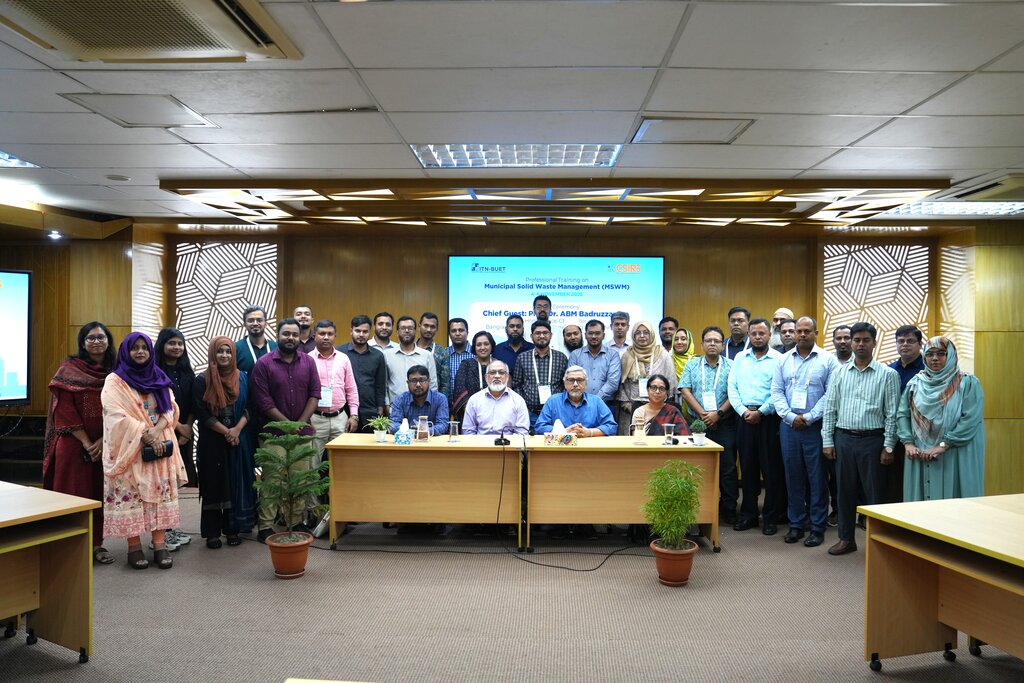The government of Bangladesh has emphasized Citywide Inclusive Sanitation (CWIS) approach and the National Action Plan (NAP) implementation as means to achieve safe sanitation services in the country. WaterAid Bangladesh (WAB), with the support of ITN-BUET, organized an exposure visit-based event where the other sector partners, including MAB, CWIS-FSM Support Cell, SNV, and Practical Action, collaborated. The event was held during 12–15 September 2022, with the funding support of the Bill & Melinda Gates Foundation (BMGF).
The Mayor, Secretary, Chief Engineer, Conservancy Officer, and other key representatives from five municipalities (Lalmonirhat, Laxmipur, Sakhipur, Saidpur, and Teknaf) have learned about CWIS system functions like responsibility, accountability, and resource planning and service outcomes like safety, equity, and sustainability. Additionally, the participants had an enhanced understanding of the FSM value chains, including the institutional capacity and resources needed to adopt CWIS at the municipal level.
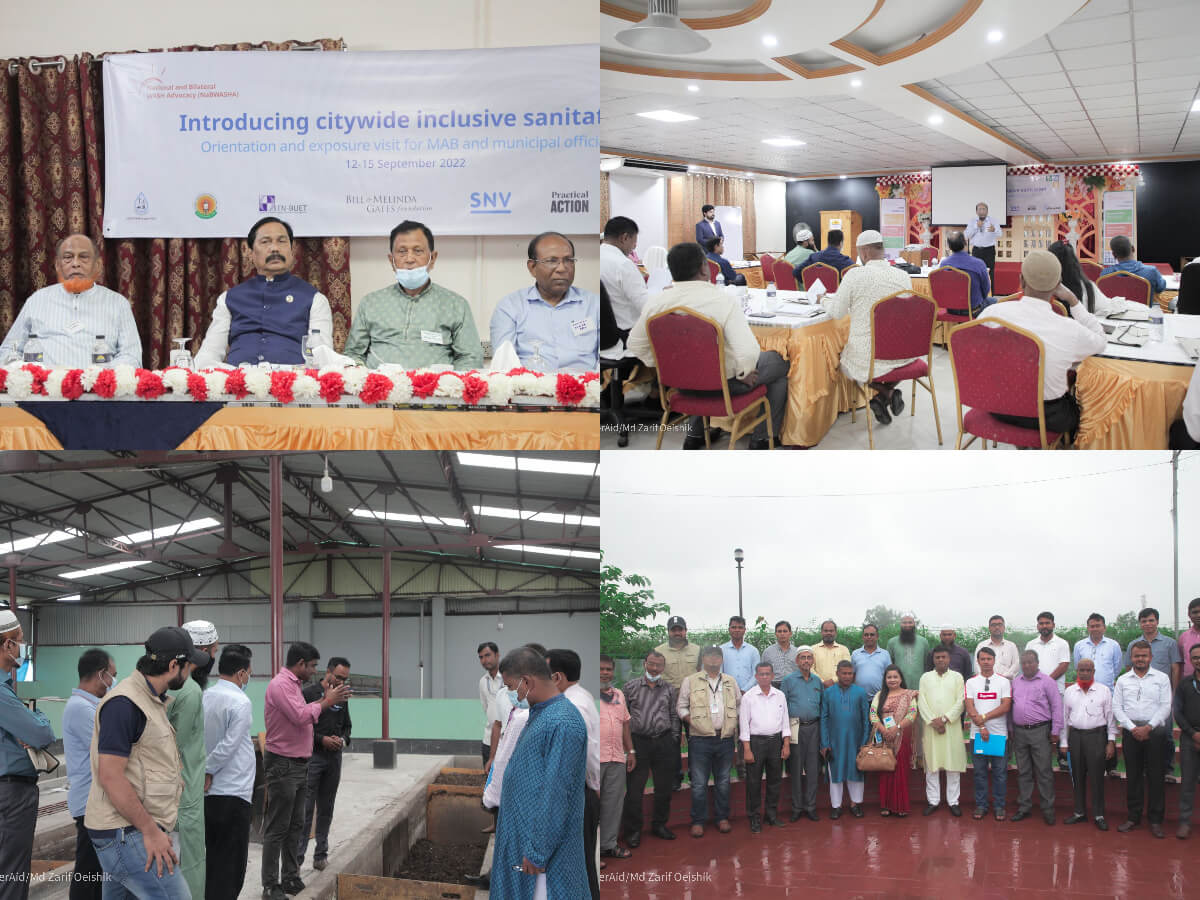
The event was inaugurated by Dewan Kamal Ahmed, President of MAB. Mr. Sanjay Mukherjee, Social Development Expert, CWIS-FSM Support Cell, facilitated sessions on the background and pertinence of CWIS to urban sanitation and SDG. Mr. Imtiaz Sharif, Training Specialist of ITN-BUET, facilitated sessions on the CWIS service framework and principles for sanitation service delivery as well as on the existing laws, rules & regulations on sanitation for the cities of Bangladesh. Mr. Uttam Kumar Saha, Strategic Lead – Urban & Energy, Practical Action, and Shahidul Islam, Project Manager, SNV, shared their experiences implementing the CWIS approach in Bangladesh. Mr. K.A. Amin, Urban Sanitation Specialist, WAB, facilitated a session on the overview of the CWIS concept and Basic of SFD. The program included extensive field visit to Saidpur FSTP to learn the sanitation and FSM services provided by the Pourashava. The participants also visited Kushtia Pourashava to meet with municipal authorities and learn about their practices IMIS system and public toilet operations and maintenance.
In the concluding session, the attendees felt that the field demonstration sessions were resourceful and well-organized. All Mayors said the program was essential to implement CWIS and FSM at their Paurashavas. They also requested to include more officials and Councilors in such events. They expressed their commitment to utilizing the learning and ensure inclusive sanitation for all their Pourashava dwellers. The city officials gave commitment to develop and implement a complete list of action items along the whole Sanitation Service Chain.


